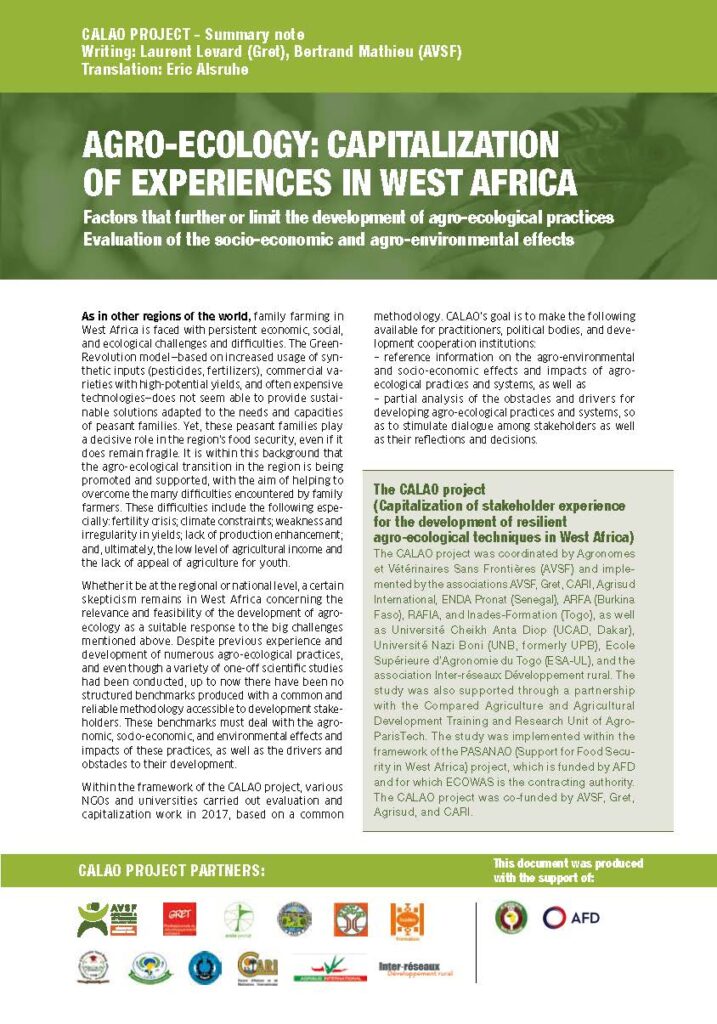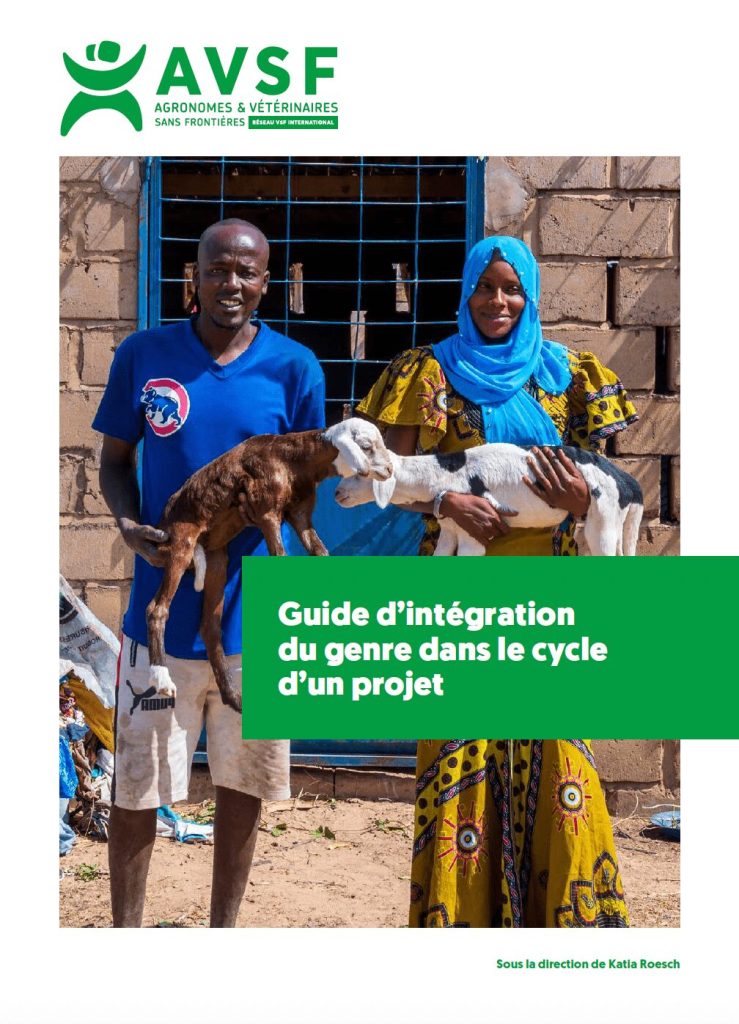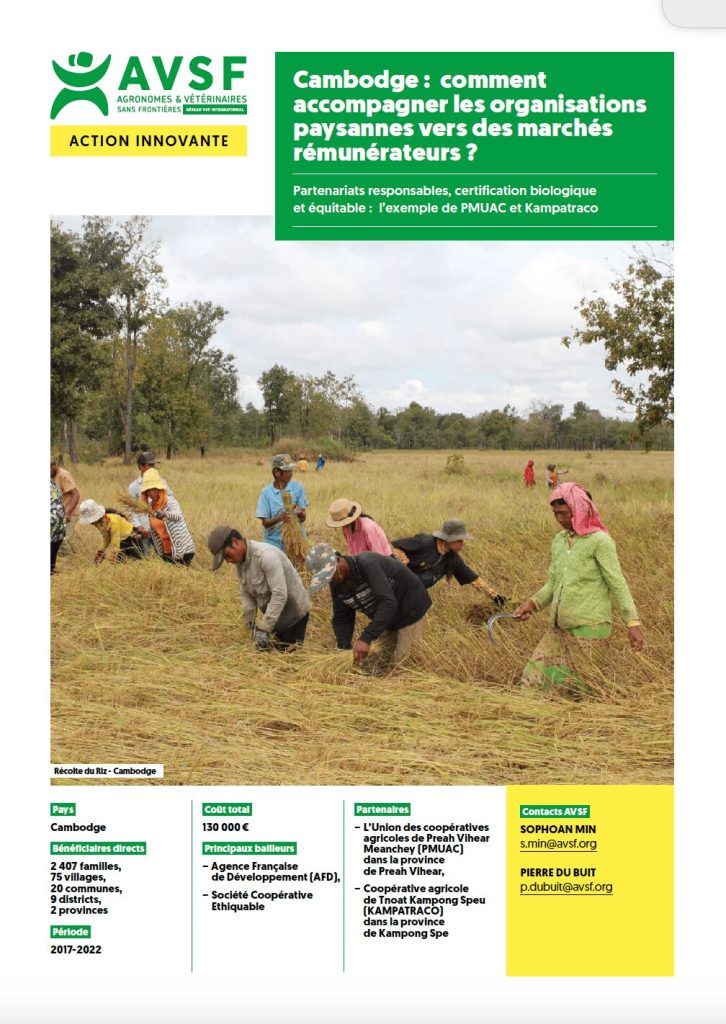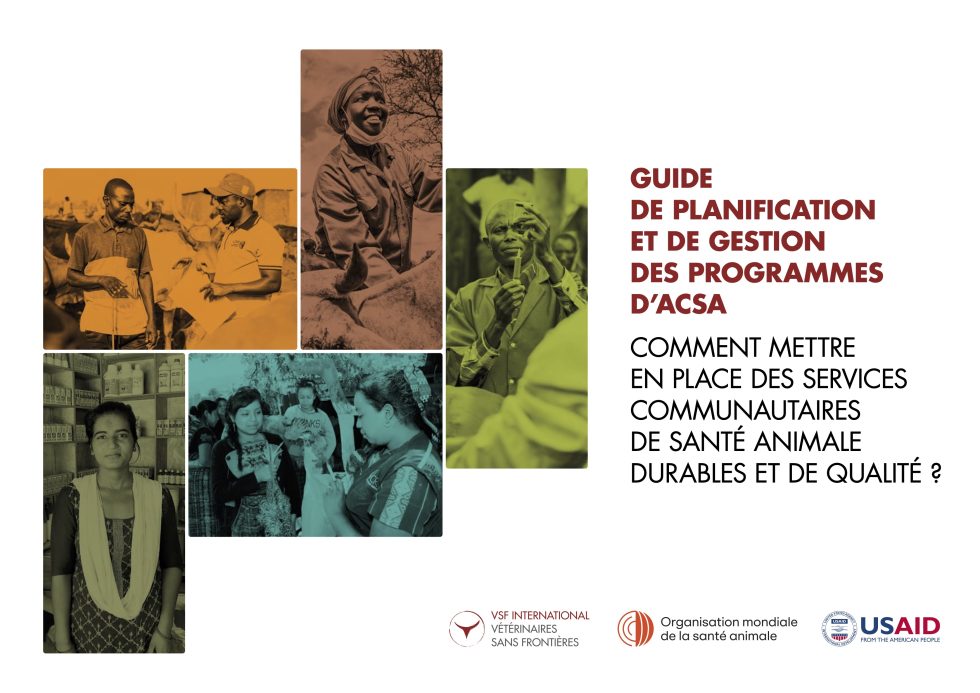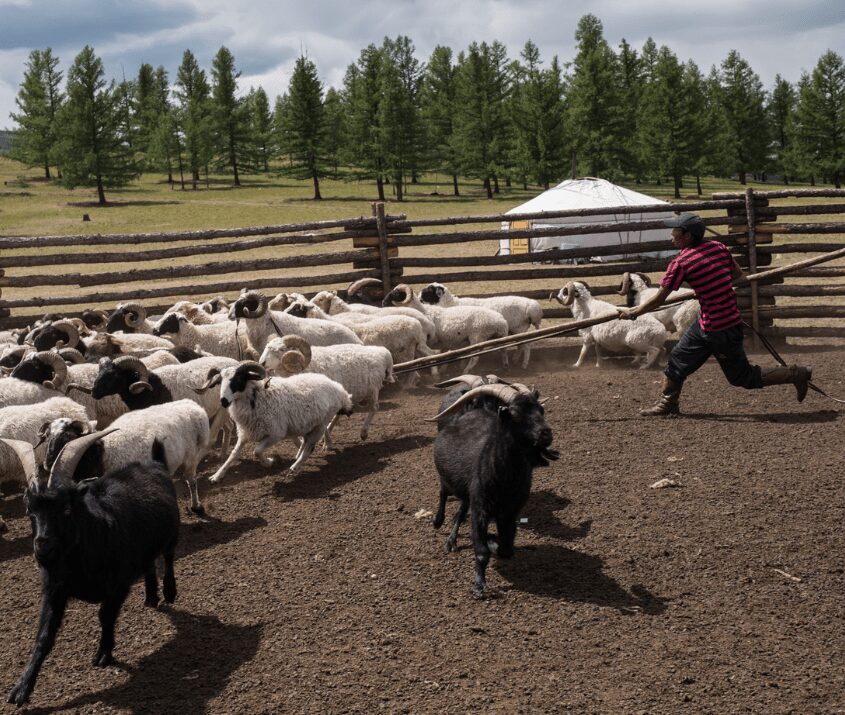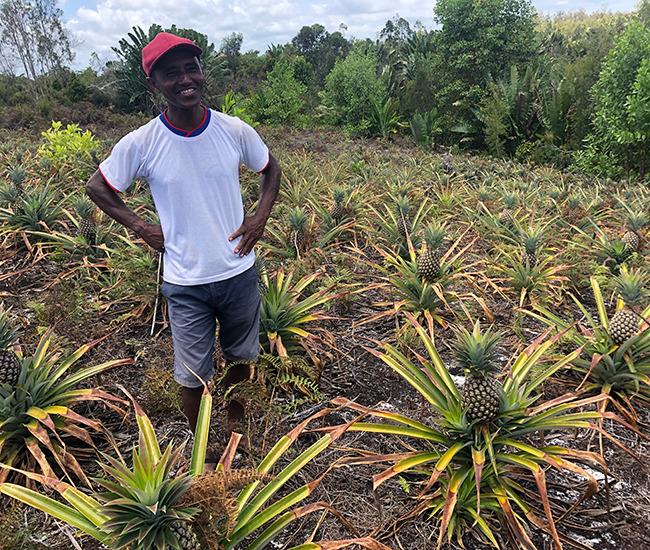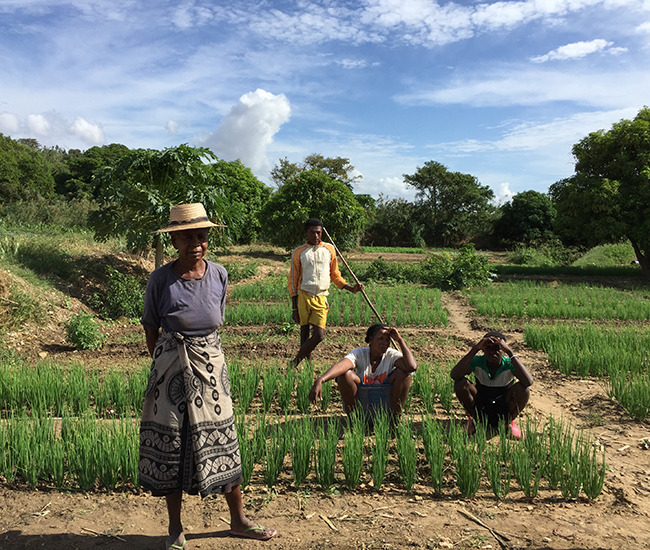Managed by AVSF in 2017, the CALAO Project is a Capitalization of stakeholder experience for the development of resilient agro-ecological techniques in West Africa, supported by AFD and ECOWAS. This project consisted of a work of evaluation and capitalization of the agro-environmental and socio-economic effects and impact of agro-ecological practices and systems on the basis of studies carried out in Senegal, Togo and Burkina Faso. He also recorded elements of analysis of the obstacles and drivers for the development of these practices. The aim is to make available to practitioners, policy makers and cooperation institutions, these data and references.
The comparison and modeling of different production systems has highlighted the positive effect on agricultural income of those who integrate more of the principles of agroecology. The results of this work also highlight the considerable potential of agroecology for agricultural production, economic and social development (employment, wealth and income generation), food and nutrition security and the regeneration of degraded ecosystems of the West African region. The analysis of the obstacles and drivers for the development of agroecology also shows that such a large-scale development can not be achieved without a whole set of coherent interventions between them, including in terms of public policies.
The project involved several African and French NGOs and universities, including the other three members of the Working Group on Agroecological Transitions (GRET, Agrisud and CARI) and their partners in Burkina Faso, Senegal and Togo. Financed by AFD, the CALAO project is part of the West Africa Food Security Support Project (PASANAO) of ECOWAS.
Written by Laurent Levard (Gret) and Bertrand Mathieu (AVSF), the capitalization documents present the main results of the field studies, conducted in the Sudano-Sahelian zone, in Burkina Faso (eastern region), in Senegal (Sérère region) and in Togo (Savannah region).
